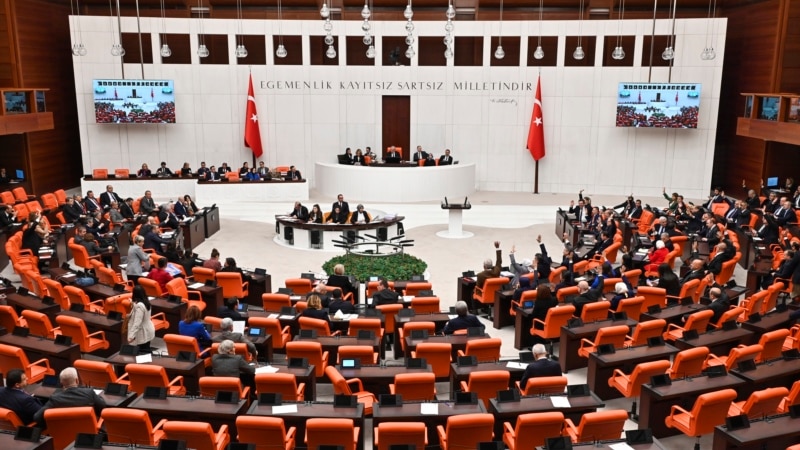After more than a year of delays, the Turkish parliament voted Tuesday in favor of Sweden’s entry into NATO. Sweden’s accession protocol was ratified with 287 votes in favor, 55 against and four abstentions.
The decision comes after the Turkish Foreign Affairs Commission approved the country’s bid for membership last month.
Swedish Prime Minister Ulf Kristersson welcomed the vote.
“We are one step closer to becoming a full member of NATO,” he said.
Only one country, Hungary, still must ratify Sweden’s bid for membership before it can join the alliance.
U.S. National Security Adviser Jake Sullivan echoed the Swedish leader, saying, “We welcome the Turkish parliament’s vote approving Sweden’s application to join NATO.”
NATO Secretary-General Jens Stoltenberg also praised the Turkish vote in favor of Sweden’s membership and said he would “count on Hungary to complete its national ratification as soon as possible.”
Although Sweden still needs Hungary’s approval before being able to enter the military alliance, this is a landmark decision as Turkey has refused to approve Sweden’s bid for membership since its initial application in 2022, frustrating Western allies.
Turkey had claimed Sweden protected members of the Kurdistan Workers’ Party (PKK), which is recognized as a terrorist organization by Turkey, the European Union and the United States.
However, Turkish President Recep Tayyip Erdoğan also linked his country’s refusal to approve Sweden’s membership to the delayed U.S. approval of the sale of F-16 fighter jets to Turkey.
Since its application, Sweden has introduced an anti-terrorism bill that makes membership of a terrorist organization illegal. Additionally, Sweden, Canada, Finland and the Netherlands have relaxed arms-exports policies for Turkey.
U.S. Secretary of State Antony Blinken and Turkish Foreign Minister Hakan Fidan spoke earlier this month about the F-16 sales, after which Blinken announced that Turkey would likely ratify Sweden’s membership.
Hungary, for its part, says Sweden has had an “openly hostile attitude” toward Budapest for years and is angry about Sweden’s criticism of Hungarian Prime Minister Viktor Orban over the perceived erosion of the rule of law. Orban denies any erosion.
Orban’s chief of staff, Gergely Gulyas, noted last Thursday a lack of “confidence-building steps” from Stockholm to improve relations with Budapest, which might aid in ratifying Sweden’s accession.
Some material for this report came from Reuters and Agence France-Presse.

